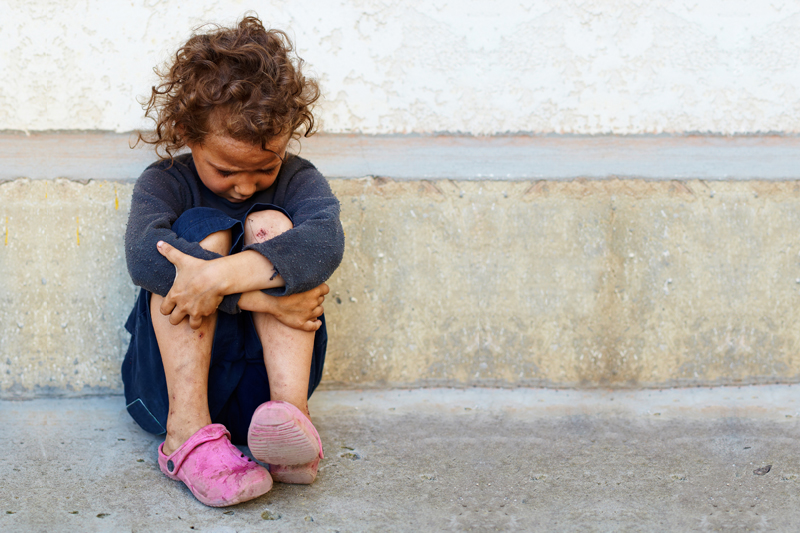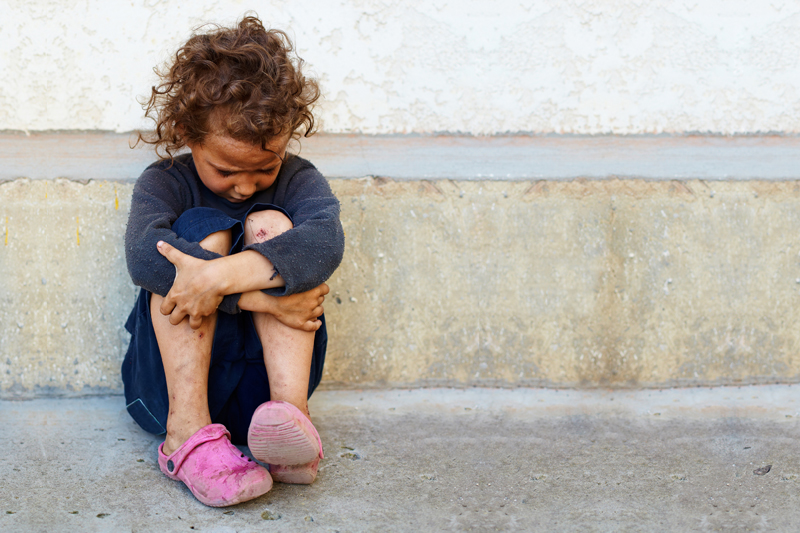Teach Children to Say No

Summer is here and almost gone. Schools will be starting for many children in the next few weeks. Today is the time to review your family safety guidelines regarding school and home safety. I fully believe education is a parent’s number one responsibility. We have our children (god willing) for 18 years. It would take that same period for a person to complete a Bachelor, Master and Doctor’s of Philosophy degree with a few years left to rest. The time to help children recognize the signs of a bad situation is now, not when they are packing the car to go to college.
Children need help in recognizing a potentially unsafe situation. Many children are not cognizant of the world happening around them. Instilling total fear is not the objective when teaching children how to be safe and responsible. Fear only causes people to stop living and is not useful unless it is happening as a warning sign that something is not right. That kind of fear is our gut instinct notifying us that we need to be alert, look around, check out who is in your space, and think about alternative escape routes if confronted by danger.
We have 18 years to teach our children how to live, how to function in this world, and many people expect the schools to teach a child how to be safe. Why would anyone wait to begin teaching a child how to be safe until the child are 5 or 6 years old? Most parents unwittingly do a child a disservice by “helping” them do the things they have difficulty completing by themselves. Children learn by doing. If a parent alleviates all stress and frustration for a child, he or she will only learn to depend on other people, rather than building confidence in their own ability.
Early on we tell a child no if he or she tries to touch a hot stove or a candle. We teach them to look both ways when crossing a street, we warn them about strangers, yet do we tell our children that people we know may be unsafe. The statistics show children are hurt by someone they know, a parent, a stepparent, a grandparent, an aunt or uncle, a cousin or even stepsiblings, versus a complete stranger.
We insist our children respect their elders, and to not question authority, yet this teaches them blind obedience. Blind ignorance is not being safe, but oblivious to what can happen. Children need to learn to question what feels wrong! Questioning an adult who tells them to do something inappropriate is not being disrespectful. Especially since the initial period of questioning can be done in a polite manner. Yet children need to know if he or she truly has a concern that a parent will back them up.
Parents need to listen to children when they have a concern. I tell my children to preface their statement with “mom this is important/an emergency”. That sends a red flag up that tells me to stop everything else and pay close attention. Role-playing with children will help them develop a voice that will tell an intrusive adult that this child knows what is right and wrong. When the hairs stand up on the back of a child’s neck, or his or her stomach feels like it has butterflies swarming around inside, is the sign children need to recognize is a warning of possible danger in the midst.
Role-playing helps a child learn how to use his or her I am serious voice. When role-playing use the words an adult might use, regardless of how uncomfortable it may make you. Teach children the proper names of body parts. Tell children about pedophiles, inappropriate touching, and that he or she has the right to say no or stop to an adult or older peer. Teach children to say no. Tell them to get out of a dangerous situation if alone and go tell the nearest safe adult what happened.
Parents often teach children it is not okay to say no, to feel bad, or to know something does not feel right. A child who does not learn how to say no is being set-up for exploitation. Talk, and l-i-s-t-e-n to your child, he or she may teach you something important. Until next time, be well, stay safe, and remember to listen to what your child has to say.
Children need help in recognizing a potentially unsafe situation. Many children are not cognizant of the world happening around them. Instilling total fear is not the objective when teaching children how to be safe and responsible. Fear only causes people to stop living and is not useful unless it is happening as a warning sign that something is not right. That kind of fear is our gut instinct notifying us that we need to be alert, look around, check out who is in your space, and think about alternative escape routes if confronted by danger.
We have 18 years to teach our children how to live, how to function in this world, and many people expect the schools to teach a child how to be safe. Why would anyone wait to begin teaching a child how to be safe until the child are 5 or 6 years old? Most parents unwittingly do a child a disservice by “helping” them do the things they have difficulty completing by themselves. Children learn by doing. If a parent alleviates all stress and frustration for a child, he or she will only learn to depend on other people, rather than building confidence in their own ability.
Early on we tell a child no if he or she tries to touch a hot stove or a candle. We teach them to look both ways when crossing a street, we warn them about strangers, yet do we tell our children that people we know may be unsafe. The statistics show children are hurt by someone they know, a parent, a stepparent, a grandparent, an aunt or uncle, a cousin or even stepsiblings, versus a complete stranger.
We insist our children respect their elders, and to not question authority, yet this teaches them blind obedience. Blind ignorance is not being safe, but oblivious to what can happen. Children need to learn to question what feels wrong! Questioning an adult who tells them to do something inappropriate is not being disrespectful. Especially since the initial period of questioning can be done in a polite manner. Yet children need to know if he or she truly has a concern that a parent will back them up.
Parents need to listen to children when they have a concern. I tell my children to preface their statement with “mom this is important/an emergency”. That sends a red flag up that tells me to stop everything else and pay close attention. Role-playing with children will help them develop a voice that will tell an intrusive adult that this child knows what is right and wrong. When the hairs stand up on the back of a child’s neck, or his or her stomach feels like it has butterflies swarming around inside, is the sign children need to recognize is a warning of possible danger in the midst.
Role-playing helps a child learn how to use his or her I am serious voice. When role-playing use the words an adult might use, regardless of how uncomfortable it may make you. Teach children the proper names of body parts. Tell children about pedophiles, inappropriate touching, and that he or she has the right to say no or stop to an adult or older peer. Teach children to say no. Tell them to get out of a dangerous situation if alone and go tell the nearest safe adult what happened.
Parents often teach children it is not okay to say no, to feel bad, or to know something does not feel right. A child who does not learn how to say no is being set-up for exploitation. Talk, and l-i-s-t-e-n to your child, he or she may teach you something important. Until next time, be well, stay safe, and remember to listen to what your child has to say.

Related Articles
Editor's Picks Articles
Top Ten Articles
Previous Features
Site Map
Content copyright © 2023 by Erika Lyn Smith. All rights reserved.
This content was written by Erika Lyn Smith. If you wish to use this content in any manner, you need written permission. Contact Erika Lyn Smith for details.



